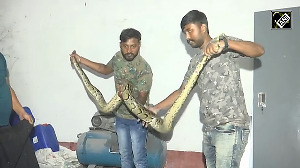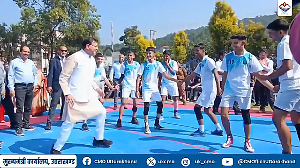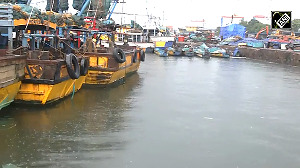A special bench of the Allahabad high court on Wednesday turned down a plea of the Archaeological Survey of India for more time to complete the excavations at the disputed site in Ayodhya.
The ASI, which had sought two-and-a-half months more, has been asked to establish whether a temple existed at the site where Babri Masjid stood before it was pulled down by Hindu zealots on December 6, 1992.
Millions of Hindus believe the site to be the birthplace of their most revered god, Ram.
The special bench comprising Justice Sudhir Narain, Justice Rafat Alam and Justice Bhanwar Singh held ASI's application for extension of time as premature.
"Since not even a month has passed since the start of the excavation work, it was too early to seek any extension of time," the bench said. It said the ASI could move a fresh application at the next sitting of the bench on April 7 .
The special bench also rejected an application moved by two Muslim residents of Ayodhya seeking a stay on the on-going excavation work.
Taking into consideration the application of the Sunni Central Waqf board for appointment of a court observer to ensure greater transparency in the excavation work, the bench said it proposed to make a request to the chief justice of the Allahabad high court to spare two district judges for the purpose.
The bench, however, turned down the plea for equal representation of Hindus and Muslims in the excavation work .
It accepted the Sunni Central Waqf Board's plea for recording of the daily progress of work in a register. ASI officials have been asked to take the signatures of representatives of rival parties at the close of each day's work and also enter whatever was found during the course of the digging.
ASI has been given the freedom to decide on the number of trenches to be dug as also the depth to which excavations could go.
Reports from Ayodhya said digging had already gone as deep as about seven to eight feet in three of the ten trenches at the site.





